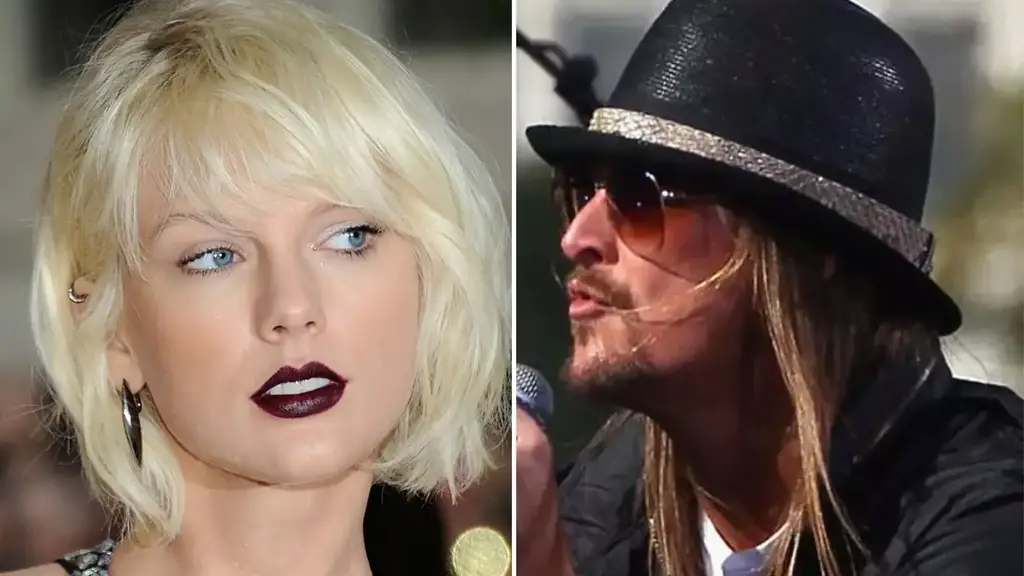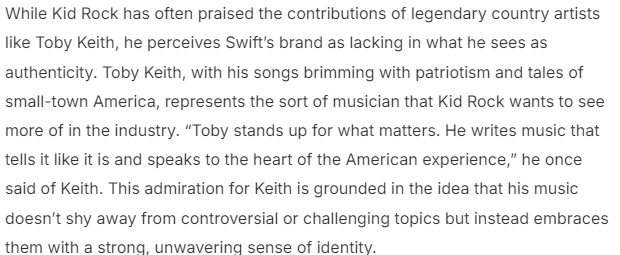In a music industry that’s often rife with surprising alliances and genre-crossing collaborations, the idea of a joint tour between Kid Rock and Taylor Swift might have seemed outlandish to some but intriguing to others. However, the rocker swiftly dispelled any notion of such a pairing, making his opinions known in his typical no-holds-barred style.


Kid Rock’s comments reflect his long-standing alignment with a rugged, unapologetically American brand of music that merges rock, country, and hip-hop. With albums like Devil Without a Cause and Born Free, he has cultivated a persona that appeals to fans who value a no-nonsense approach to storytelling and themes rooted in heartland values. Meanwhile, Taylor Swift, with her massive following and genre-bending discography, represents the increasingly mainstream and pop-oriented direction that contemporary country music has taken. The stark contrast between their fan bases and musical ethos is indicative of a broader shift that has ruffled feathers among traditionalists like Kid Rock.

In contrast, Kid Rock criticizes Swift for what he perceives as a more calculated and market-driven approach. Despite Swift’s ability to tell stories that resonate with millions, Kid Rock is skeptical about whether her storytelling stems from genuine experiences or is crafted to appeal to the broadest possible audience. In recent years, as Swift has embraced a more explicit political stance and continued to expand her pop influences, the cultural gap between her and traditionalists like Kid Rock has widened even further.


While some fans might lament the lost opportunity for what would undoubtedly have been a high-profile tour, others applaud Kid Rock for staying true to his roots. The divide between the two camps underscores the evolving nature of the music industry, where cross-genre collaboration is increasingly the norm. Yet for musicians like Kid Rock, whose career was built on unapologetically speaking his mind, compromising his values isn’t an option.

For now, Kid Rock remains unwavering in his beliefs. While he has nothing against musicians charting their paths, he insists that the industry should not forget the foundational values that artists like Toby Keith represent. “We’re losing touch with what made country music special in the first place,” he says, expressing concern that genre experimentation might ultimately dilute its identity.
Swift, on the other hand, has found immense success in her ability to transcend genres and redefine herself with each album release. While her early country hits like “Our Song” and “Love Story” cemented her status as a country star, she quickly pivoted into pop territory with 1989 and has since experimented with indie and alternative sounds. Her willingness to embrace change has earned her a fiercely loyal fan base but has also made her a lightning rod for criticism from purists like Kid Rock.


NOTE: This is SATIRE, it’s not true


